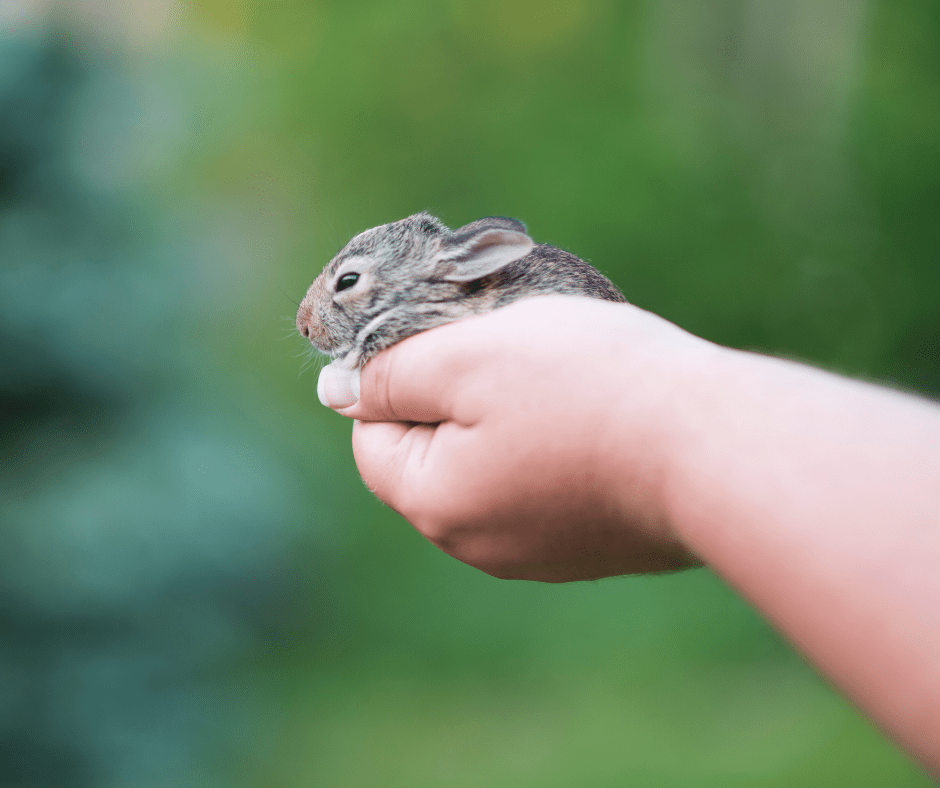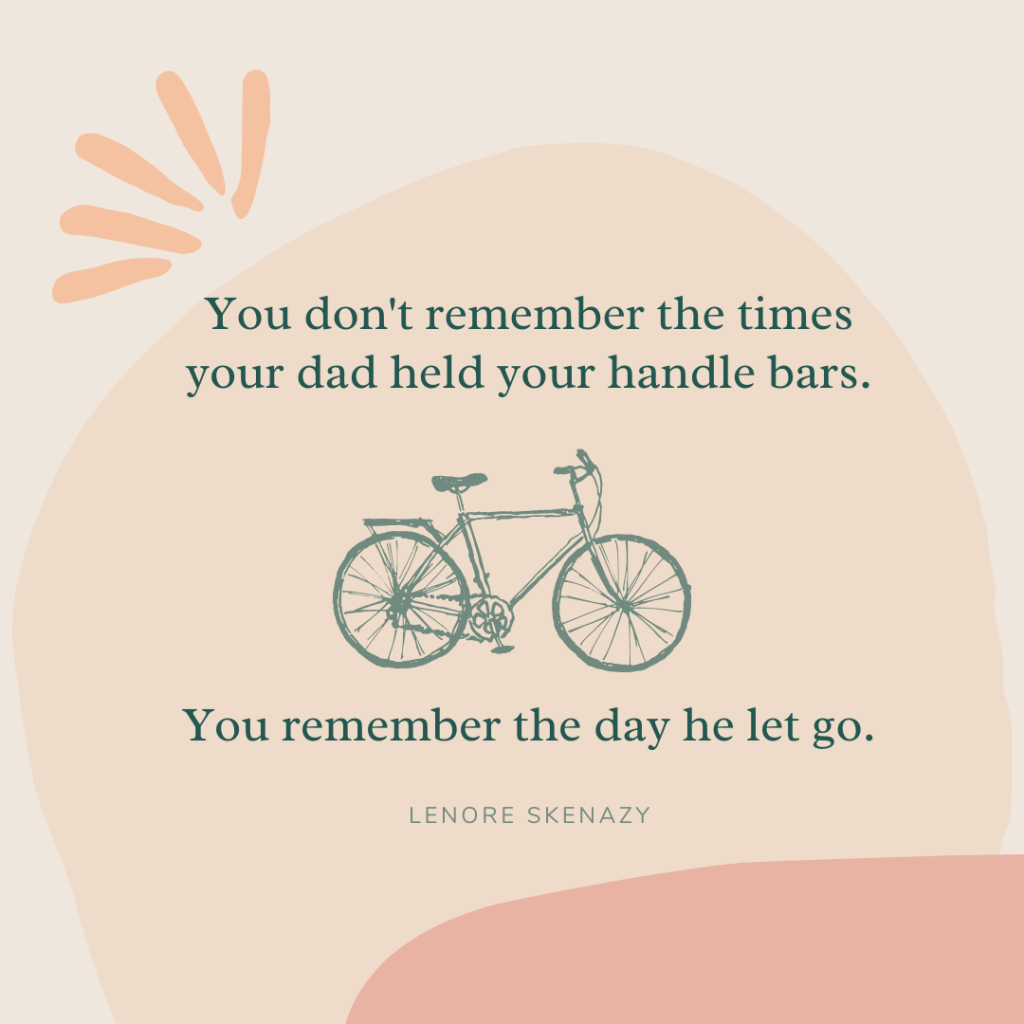“How old is she, again?” I asked.
“She just turned 3.” I watched as she kept climbing until she neared the thinner branches toward the top of the tree. Her mother was standing beside me, looking only a little concerned, so I tried to make my face look as calm as hers. What was going on inside my head was a different story. Little Kaya waved proudly from the top, made her way back down, hopped off a low branch, and headed off to do something else. I found my breath. My daughter Camille, who is a few months older than this little girl, and had also been watching her climb, made her way up to the first branch of the same tree that stood approximately 2 feet off the ground. “Look at me, mom!” I put on my biggest smile. “Wow! Way to go honey!”

Am I a helicopter parent? Maybe. Or at least a semi-recovering one. My children are getting older and have started saying things like: “Mom, we’re fine! You can leave. It’s actually better if you just don’t watch”. And it usually is better. My “worrier” tendencies didn’t fully engage until I became a mother, but ever since they kicked in it’s been as if a “worst case scenario” page keeps refreshing itself in my mind every time one of my children wants to experience something new. And what’s wrong with being a little cautious? Or a lot cautious? Isn’t that simply being more responsible?
Not necessarily. Especially when I realized that I might actually be hindering my children more than helping them.
Lenore Skenazy, author of Free-Range Kids and founder of Let Grow, is one of the experts featured in the film, Chasing Childhood. She has made it her life’s goal to educate parents as to why it is important to let children have opportunities to grow and learn away from the watchful eyes of mom and dad. She made headlines as “America’s Worst Mom” when she allowed her son (then 9) make his way home on his own on the New York City subway.
Lenore Skenazy, Free-Range Kids
“We forget that one of the great joys of childhood is exactly that feeling: how the world that you drifted through holding on to your mother’s hand becomes your world when you start to navigate it on your own.”
As I sit here writing, I look out the window and- I’m not even kidding- there is an elderly gentleman walking down the street with a small girl that I’m assuming is his granddaughter. Or maybe I should rephrase and say that he is “walking her”, as she wearing a harness attached to a leash that he is holding onto. Although it would be tempting to spend all of my parenting years reassuring myself that I am definitely more laid back than this grandpa, it’s not sufficient if I want my children to thrive.
What I’m learning (and it’s only taken me 5 kids to learn it) is that I must know and trust my own children, not compare them to anyone else. I need to be real about when it’s best to hold their hand and when it’s best to let go. I also need to trust that when they say they can do something, they probably can. I want to preserve the “I can do it myself” pride in my younger ones so that they don’t grow into “Mom will do it for me” teens. And the only way to make it happen is to let go.
In the film, Chasing Childhood, Lenore Skenazy challenges parents to think about some experiences they had as a child, that they would not feel comfortable allowing their own children experience. Are there things that your children have specifically asked to do that you’ve been quick to say no to? If so, you’re not alone.
My husband, Greg, grew up on the basketball court. Any opportunity he had (including skipping out on piano lessons) he would ride his bike over to the city courts. And although his mom probably thought that countless hours were being wasted, each day he was learning lessons like how to stand up for himself, how to negotiate to get into the next game, how to work together with people he didn’t even know, and how to push his body hard. Greg and I had a conversation recently as to whether or not we’d let our 11 year-old son ride off to find a pick up game. Our instincts seemed to say, “Well, you know. Times have changed.” This is a very common refrain among today’s parents. But is it true?

Skenazy says that the driving factor in restricting our children’s freedom is fear. Fear of injury, accidents, child abduction, what others might think, etc. And yet, the world we live in is statistically safer than ever before. She credits the 24/7 news media outlets (and the fact that we are glued to them) for keeping us in a state of “what ifs” and “worst case scenarios” that prevent our children from actually living their fullest life. Childhood as we knew it, and especially as our parents and grandparents knew it, seems to be disappearing.
I have fond memories of spending lots of time at one particular friend’s house after school when I was about 8 years old. We were usually unsupervised and had freedom to roam to the park or hang out at her house. One day, playing in her back garden, we discovered some baby bunnies. I never had a pet growing up and to hold those little creatures was a dream come true. We made plans to take care of them, feed them, and watch them grow. A few days later, we tiptoed back to their little burrow only to find that my friend’s dog had apparently tried to “play” with the bunnies as well. They were all dead. It was one of my first lessons about the fragility of life.

Children learn these important lessons precisely because their parents are not there to teach them and they are made to wrestle with what to think, say, and do in these situations. There are things (dare I say most things that matter?) that simply can’t be learned in the vacuum of a classroom, a curriculum, or a lecture. Sometimes these experiences end in pride and other times in pain, but always with growth. So whether it be in the back garden, out in the street, at the park, in the woods, or just in the quietness of their rooms, we must remove the harness, and create space and time for our children to learn and grow away from adult-directed programs and, instead, immersed in their self-determined whims.
I would love to hear about one of your “I would never let my child do that” experiences that taught you an important life-lesson. How will you commit to allowing your children experience a richer childhood? Share your comments below.




I keep standing under that tree. When they choose books or movies that I want to shield them from When they talk to other adults. I worry. There is a huge battle between my rational thoughts and principles that we chose as parents: connection, authenticity and respect. Our girls have their own paths. Taking risk is very important element in life. They also know that no matter what we are here for them. We can only guide them and love
unconditionally. Sometimess we fail. But we have our paths too. And failing and standing up again is very natural thing to do.
Thank you Brittany 💗
LikeLike
Beautifully said, Aneta. You have taught me much.
LikeLike